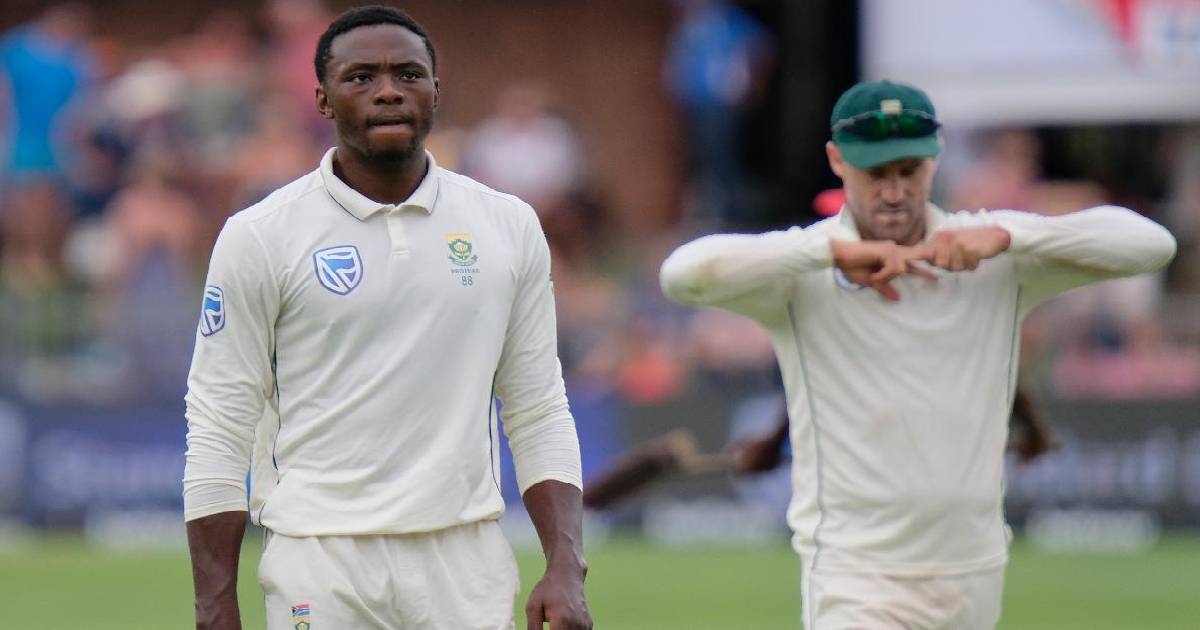Published: 03:02 PM, 18 January 2020
Boucher: ICC must find balance but Rabada went 'bit too far'

Like any fan of the game, Mark Boucher wants the International Cricket Council to find a balance when regulating how players - and especially aggressive fast bowlers like Kagiso Rabada - display their emotions on the field so as not to over-sanitize the sport.
"Don't take the emotion out of the game because I still think there is a very big part for that in the game of cricket," South Africa's head coach said.
There should be little argument over that. But while making that point, Boucher also conceded that Rabada maybe went too far when he celebrated, screaming and with fists pumping, right in front of Joe Root after bowling the England captain in the ongoing third test in Port Elizabeth.
The incident has put reasonably new ICC regulations guiding how and where players vent their emotions on the cricket field back under scrutiny.
The 24-year-old Rabada, a star of the sport, received a demerit or disciplinary point for his over-zealous celebration. An accumulation of those points led to him being banned for what will be the series-deciding fourth and final test next week. That robs the finale to a hotly contested fight between two old cricketing foes of one of the world's best bowlers.
There's been criticism of the rules and the suspension of Rabada. He was charged and punished by cricket's ruling body for "using language, actions or gestures which disparage or which could provoke an aggressive reaction from a batter."
Some question if the ICC is going too far and trying to restrict players showing their feelings.
But Rabada wouldn't have been disciplined if he celebrated in the same way a meter or two to the left or right of Root. His venting right in front of Root — "yes, he was in his space," Boucher admitted — was the problem because it was deemed provocative. Rabada appeared to intentionally head straight for Root.
And this is where the criticism that the ICC is removing emotion from cricket might be misplaced.
Because Rabada, young, energetic and fiercely competitive, has celebrated plenty of wickets this series with equal zealousness, just not right in the face of an opposing player. And the ICC hasn't had any issue with it.
That's surely the balance Boucher and other coaches and players are calling for.
Another incident from this series saw England wicketkeeper Jos Buttler fined for his expletive-laden taunting of South Africa's Vernon Philander in the second test in Cape Town. On-field sledging between players is far from new in cricket, but Buttler's swearing was caught on a stump microphone and broadcast fairly clearly to a live TV audience of all ages.
Buttler was fined, a move also criticized by some commentators and former players, though the ICC does not appear unreasonable in its concerns over swear words ringing out on live TV during a game.
There's evidence of some balance from cricket officials in this regard, too. When Buttler walked out to bat on Friday, the South Africans greeted him with some words of their own - there may or may not have been expletives — but nothing was caught on any microphone.
Most cricketers see sledging, within reason, as a part of the game and the ICC isn't going to be taking any action against anyone for Buttler's fiery welcome because it all stayed on the field among the players. Their business.
As Ollie Pope, the other England batter out there when Buttler arrived, said: "What's said on the pitch stays on the pitch, unless the stump mics pick up on it.
"Obviously there would have been a bit of a hostile environment but that's only natural, that's cricket. Two countries are battling it out. It was all good."
It was all good for the ICC also, which seems to have found some balance between those two sledging incidents.
Boucher made clear he had issues with some of the finer points of the regulations, including being unable to appeal low-level offenses like Rabada's that resulted in him being banned only because he has committed similar offenses three times previously in the last two years.
But Boucher also conceded: "KG (Rabada) knows what he can and cannot do and he maybe just pushed a little bit too far."




